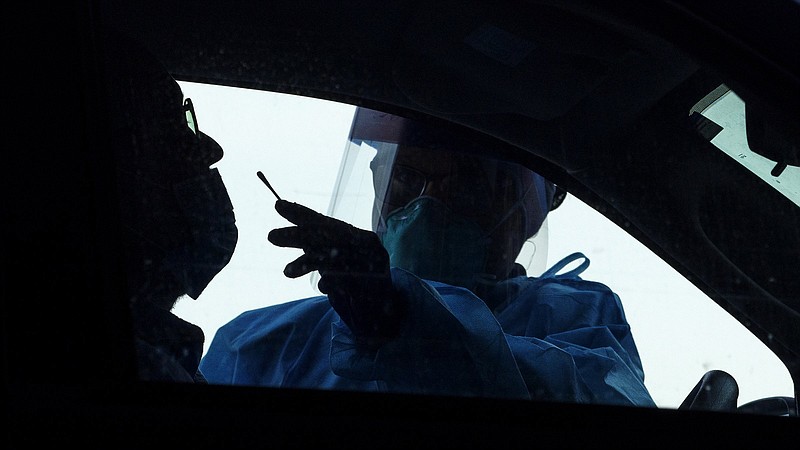Every week, the Times Free Press will publish five essential things to know about the coronavirus pandemic in the Chattanooga region. For more updated case count numbers and other data related to Tennessee, Georgia and Alabama, visit timesfreepress.com/virus.
Five things to know about COVID-19 in the Chattanooga region for the week ending Oct. 2:
1. State and county lift coronavirus restrictions on businesses and large gatherings: Gov. Bill Lee also extended Tennessee's state of emergency this week.
Why it matters: The governor's order, which went into effect Wednesday, lifted bans on large gatherings and businesses in 89 of Tennessee's 95 counties. The six largest counties in the state, including Hamilton County, can decide their own policy. Hamilton County Mayor Jim Coppinger announced that his county would follow the state's lead, saying Hamilton County was moving in the right direction.
Read more about the order from Gov. Bill Lee and what it means in Hamilton County.
2. Schools, hospitals and detention center top list of COVID-19 clusters in Hamilton County: The list shows the workplaces and areas where the virus has concentrated.
Why it matters: A cluster is defined as two or more confirmed or probable cases of COVID-19 that are linked by the same location of exposure. Places leading the list include the University of Tennessee at Chattanooga, Erlanger's main hospital campus and Silverdale Detention Center. The cluster list mirrors state and national trends for COVID-19 clusters, which typically occur where large numbers of people congregate indoors in close quarters.
Read more about which other businesses are on the list and what they had to say.
3. Tennessee's K-12 schools get thousands of rapid tests: Gov. Bill Lee said the tests are part of a continued push to reopen public schools across the state.
Why it matters: This week Tennessee received the first 133,000 of a projected 2 million rapid point-of-care coronavirus test kits, capable of producing results in the field in 13 to 15 minutes. The ability to get results in that time frame, without having to send the test to a lab for processing, is part of the administration's efforts to keep schools open.
Read more about the rapid tests coming to Tennessee schools.
4. What to know if you were exposed to COVID-19: The Times Free Press "Ask a Doc" column answers the question of when to get tested after exposure.
Why it matters: Many people are unsure of when to get tested. Should it be right after I was potentially exposed? Only if I develop symptoms? Hendricks explains that getting a negative test does not mean a person's quarantine period is up because some individuals take days to develop symptoms.
Read more about what you should know about getting tested.
5. Hamilton County Health Department shifts COVID-19 testing time: Change still means tests will be available seven days a week.
Why it matters: The health department is pushing the start time for free COVID-19 testing back from 7:30 a.m. to 8:30 a.m. The change is about ensuring work safety, the department said, as temperatures drop and the sun rises later in the morning. Tests will still be available for 4.5 hours a day at the Alstom site.
Read more about the changing COVID-19 testing schedule.
What are your experiences with the coronavirus? Are you or someone you love affected by it? What questions do you have? We would like to hear from you, so please contact efite@timesfreepress.com or wmassey@timesfreepress.com.
Contact Wyatt Massey at wmassey@timesfree press.com or 423-757-6249. Follow him on Twitter @news4mass.
